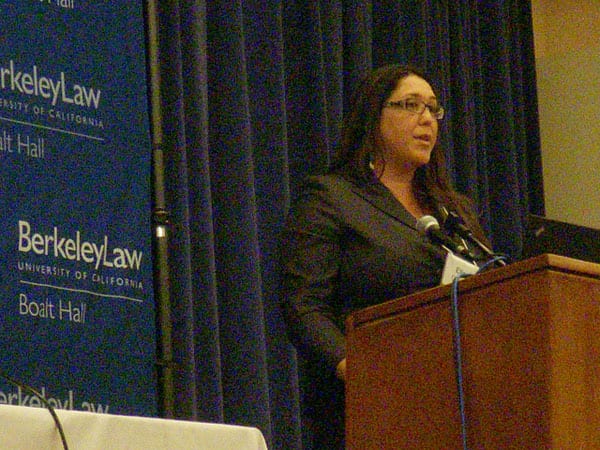
December 5, 2018; Indian Country Today
Here, we follow up on a story from October about a challenge to the Indian Child Welfare Act (ICWA) of 1978. In northern Texas, Judge Reed O’Connor ruled that the ICWA was unconstitutional.
Congress passed the Indian Child Welfare Act to ban the once-common practice of Native American children being forcibly taken from their families by public officials and placed in non-Native families and institutions. Writing in Indian Country Today, Rebecca Nagle notes that prior to the law’s passage, “25 to 35 percent of Native children had been taken away from their families and were being raised in non-Native homes. Native American tribes lost a third of one generation.”
Last week, a higher court ordered a stay on the judge’s ruling. This means that for now the ICWA is intact and in effect in all 50 states. Although the stay was greeted by the National Indian Child Welfare Association as welcome news, this ruling is only temporary.
The stay follows the decision by the US Justice Department to file an appeal of the ruling in Texas, defending ICWA on behalf of the Departments of Interior and Health and Human Services. The appeal was filed on November 30th.
The case in question, Brackeen v. Zinke, originated, Nagle reports, “in the adoption of a two-year old Cherokee and Navajo boy by a white couple, the Brackeens, in Northern Texas. Even though a Navajo family was ready to take the toddler, the Brackeens won their case. Following the suit, the state of Texas, Louisiana and Indiana, along with two other adoptive couples, joined the Brackeens to argue the entirety of ICWA should be declared unconstitutional.” (It should be emphasized that the young Cherokee child, who is now four, will stay with the Brackeen family regardless of the court’s final decision, because the state of Texas has already finalized the adoption).
Sign up for our free newsletters
Subscribe to NPQ's newsletters to have our top stories delivered directly to your inbox.
By signing up, you agree to our privacy policy and terms of use, and to receive messages from NPQ and our partners.
Four Native American nations—the Cherokee Nation, the Morongo Band of Mission Indians, the Oneida Nation and the Quinault Indian Nation—have joined the case to defend the law. After the stay was issued, they released the following joint statement:
This stay decision protects children from potential abuse and forced separation from their families. As a result, tribal families and their children in Texas and Indiana will continue to be protected from the types of abusive child welfare practices that Congress outlawed 40 years ago when it enacted ICWA.
We strongly believe the ruling holding the Indian Child Welfare Act is unconstitutional was wrong, will ultimately be reversed on appeal, and as a result, the rights of Indian children, families and communities protected by the Indian Child Welfare Act will be affirmed and reinforced.
A final ruling, however, has yet to be made. Nagle highlights the stakes: Native American children, she notes, “are still placed in foster care at disproportionate rates. In South Dakota, Native Americans are less than 15 percent of the state’s population, but Native kids represent 50 percent of all children in foster care, with almost 90 percent of them being raised in non-Native homes. In Minnesota, Natives Americans are only 1.4 percent of the population, but Native kids represent 23.9 percent of the kids in the state foster care system. Today, more than half of US states are out of compliance with ICWA rules.”
According to Nagle, “If ICWA is struck down, the current crisis would get much worse.”—Rob Meiksins and Steve Dubb











